Colleen stared at me with a stunned expression that she made little attempt to hide.
“Did your father try calling the Coast Guard?”
“Coast Guard?” I repeated with a sly grin. “This was a little before their time.”
“Sera,” Colleen began, shifting herself in her seat, “how old are you?”
This question made me sad for some reason. Old enough to know I’ve lived long enough, I thought to myself. But there are things I must do before I go.
When I didn’t answer, she changed the subject.
“Tell me about the relationship you had with your father after your mother passed away.”
My eyes wandered to the picture of her son again.
“Like I said… he loved me,” I replied with my voice barely above a whisper. “I know he did…”
***
He never told me, and he didn’t always show it, but I knew it...
When I was three, the famine and the harsh winter of that year claimed his father, then his mother. He tried to take care of me as best he could by himself.
But soon, he realized that trudging through snow hunting for wild boar with a child strapped to his back wasn’t going to work. So he left me in the care of my mother’s parents, and every once in a while, he would come visit with the game he’d managed to catch.
He would stay until nightfall, telling me stories of my mother—the ones I have now. Before he left, he would always slip me a small bag of salted honey chips, whispering to me to keep it a secret.
The days I would wait for his visits were long and empty, and the time between each visit grew longer each year. Days turned into weeks and weeks into months, until one day, he stopped coming altogether.
I went back to my old village to see if he was there, but the old family farm looked like it hadn’t been inhabited for many months. Everything was still there—the cooking utensils, the furniture, the blankets.
The only thing missing was the life that used to fill it.
The other children would say that he had abandoned me because I was dirty and ugly. They would tell me the ghost of my mother roamed the streets of the village, wrapped in seaweed, looking for me. The first part I was never too sure about, but I knew the last part was a lie because they would always be laughing when they said it.
I used to think that my father was lost somewhere in the forest, perhaps at the bottom of a ravine, broken and unable to return home.
Or perhaps the band of marauders that had been terrorizing the surrounding villages had slain him. More and more, I had noticed the adults in the village looking nervously over their shoulders as they went about their daily tasks.
But when the gifts and bronze coins started to appear at my grandparents’ farm, I knew he wasn’t completely gone. There was always a bag of salted honey chips tucked into the folds of the hemp cloth.
The only child that would play with me was a boy my age named Dojin. He was so thin and quiet. We never spoke… until that afternoon when the dust storm turned the skies red.
A group of the older boys was chasing me through the village. I was faster than they were, which, of course, made them even angrier. I could barely see where I was going with the dust stinging my eyes. They chased me into the riverbed, where I slipped on the smooth stones and fell into the shallow water. The boys stood on the riverbank and laughed.
“We heard your father has a new wife and child,” one of them shouted in between gasps of breath. It wasn’t long before the others chimed in.
“He doesn’t want you! Nobody wants you… except your mother! She was walking through the village last night calling your name! She wants to drag you back into the sea with her! Go to her, you wench! You’ve been nothing but bad luck to everyone ever since you arrived!”
Then the rocks flew—thick as hail and harder than fists—striking my back and arms and head.
I came so close to giving up on my life that day. Maybe they were right. Maybe my father was remarried and living in another village. Maybe he was just sending us those gifts out of guilt. It was a rumor I had heard before. The women of the marketplace would whisper it behind my back as I walked by. I wished then that a rock would split my head open to let all these thoughts drain out. But then, the laughter of the boys turned into angry shouts.
“Shit, my head! Who threw that?! Damn it!!”
I heard the rocks whizz over my head, and I peered through the billowing red dust. It was Dojin, hurling rocks at the older boys from the other side of the riverbank with all his might.
“There he is! It’s Dojin, that bastard! Get him!!”
The boys ran past me, splashing water in my face, and dashed up the other side towards Dojin, who had turned and disappeared into the forest, the air filled with a haze of red dust.
I waited until the storm died down, but neither Dojin nor the older boys returned. I crawled up the riverbank, staggered to my feet, and walked back to the village. The adults shook their heads and clicked their tongues at my bloody face and wet, dirty clothes. Some threw salt at me as I passed by, but I didn’t care. I sat down in front of Dojin’s house and waited. As the afternoon light was fading, he returned, looking as bloody and dirty as I was.
I got up (I was a head taller than him at that time) and I took out my bag of honey chips. Most of them were crumbled and wet, but I pulled out the biggest, driest piece I could find and gave it to him.
“Thanks,” he said, sounding exhausted.
We slumped down together in front of his gate, and I put a small honey chip in my mouth.
“Just put it on your tongue and let it melt,” I said.
He nodded, and we sat quietly and let the sweetness wash over us.
***
From that moment on, we were stuck together… like two grains of rice, my grandfather used to say. And before I knew it, we were in our teens, and he was now a head taller than me. The villagers mostly ignored us, but I didn’t care. I wouldn’t have minded if things stayed that way forever, just me and Dojin hunting rabbits and wild boar in the forest till the end of our days.
But like everything else in that life, things had to come to an end.
My grandparents and Dojin’s parents had us kneel in front of them one afternoon, telling us that they had consulted a shaman. Even before they continued, I knew what this meant.
“The time has come, Sera,” my grandmother stated nervously, seeing my anger rise. “So many of the girls your age are married already. She said you and Dojin would make the perfect pair. You two get along so well alrea—”
“I will not be a slave to any man,” I interrupted, gritting my teeth and staring intently at the floor.
“Aaiii,” my grandmother groaned, knitting her sparse eyebrows in exasperation.
“Sera,” Dojin’s mother said tentatively, “you’ve been like a daughter to me. I know Dojin still acts like a boy, but with a strong girl like you next to him, I’m certain he can become the man he’s meant to be. I also know how you feel about marriage, but I’ve already gone to every other mother to see if their daughters—”
A quick pinch to her thigh from her husband quieted her.
I grunted and turned to Dojin, who had his eyes fixed on the floor. Then I continued to fume silently.
“Aaiii,” my grandmother groaned again. “You are so much like your mother. I’m going to tell you what I told her: a good wife is the heartbeat of her family. She… No, that’s not it… Oh! A husband and wife are like a cat and mouse, eventually, one will always… No, that’s not it either. Oh, what does it matter? It didn’t work anyway.”
“So… how did you get her to go back to my father?” I asked furtively, for I had always wanted to know.
She scoffed and glanced over at my grandfather.

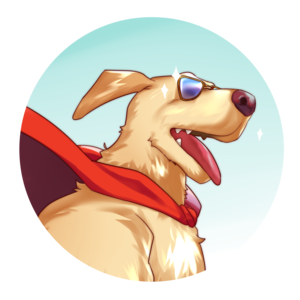
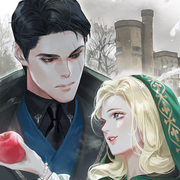
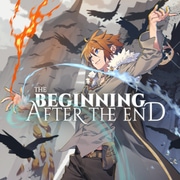
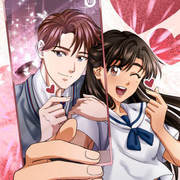
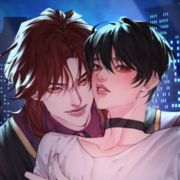
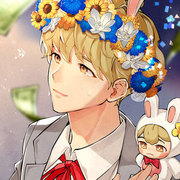
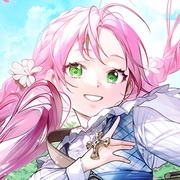

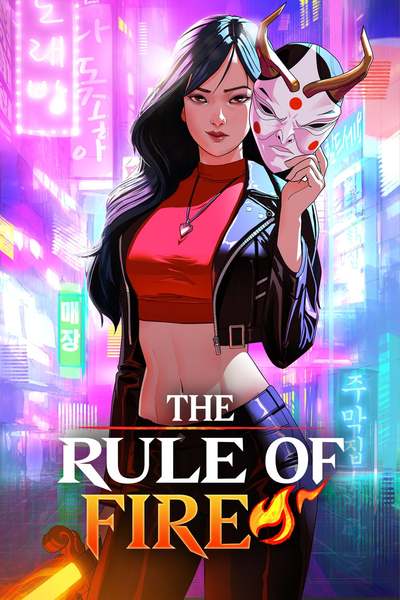
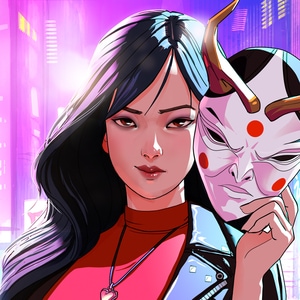
Comments (1)
See all